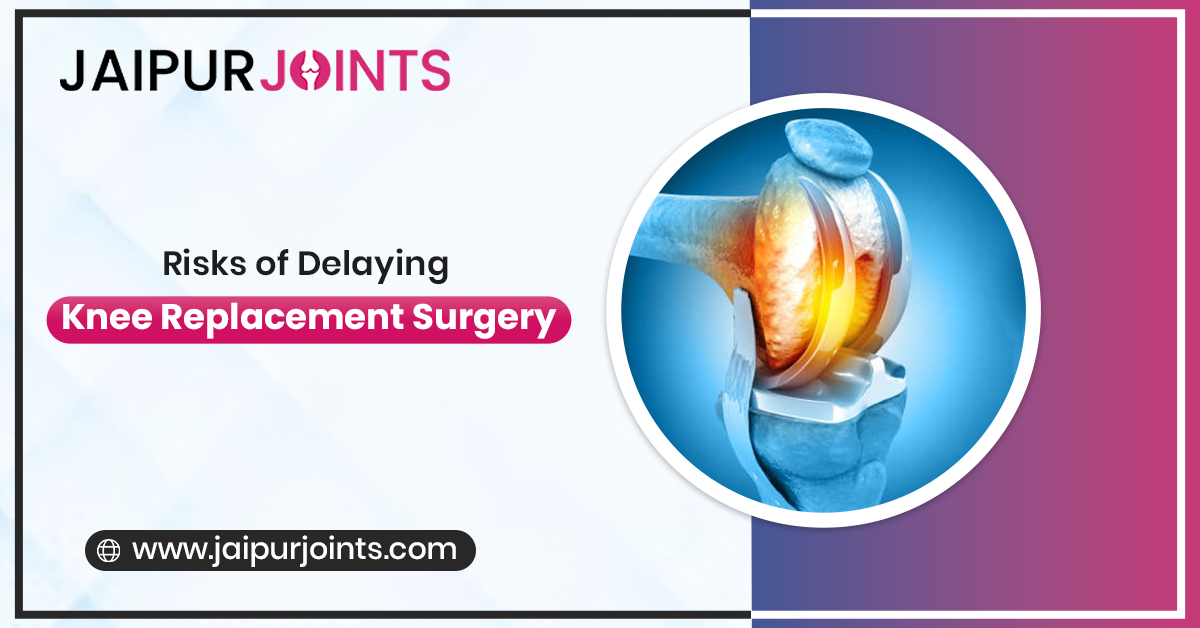
Risks of Delaying Knee Replacement Surgery
I keep thinking about my neighbour and her knees. She had been limping for months but always said, “It’s just age, I’ll manage.” At first, I thought she was exaggerating. But then, even short walks became a struggle. That’s the sneaky thing about knees—they don’t send polite warnings. One day it’s a dull ache, the next, stairs feel impossible. Waiting too long isn’t harmless. And that’s exactly what people need to understand when it comes to the risks of delaying knee replacement surgery.
The First Signs of Trouble
Pain usually starts quietly. A little stiffness in the morning. A twinge after standing too long. Maybe some swelling. Easy to ignore. Most of us say, “I’ll stretch more, take some medicine, it’ll pass.” Sometimes it works. Most times, it doesn’t. Meanwhile, the knee keeps changing. Muscles weaken, flexibility decreases, and small movements you took for granted start to hurt. Walking, bending, even standing for long periods—all slowly get harder.
- Inability to perform activities of daily living due to ongoing pain
- Congealed, making it difficult to bend or straighten the leg
- Puffy eye that persists with rest and medication
- Problems walking or going up stairs without holding on to something
- Nighttime pain that disturbs sleep
Over time, all of this adds up. And it’s not just physical. Chronic pain seeps into your mood. Frustration, irritability, and even sadness can creep in quietly. Months or years of hesitation can steal comfort and independence before you even notice.
How to Know It’s Time
It isn’t always obvious. The signs you need knee replacement aren’t just about pain—they’re about what pain prevents you from doing.
- Climbing stairs becomes exhausting.
- Standing for long periods makes you pause. Simple tasks that used to feel easy now take effort.
- And if an X-ray shows arthritis or joint damage, that’s a sign you shouldn’t wait any longer.
The Hidden Costs of Waiting
The damage from not getting the operation is frequently worse than folks realize. If the joint continues to break down:
- Mobility goes down – You get really tired doing things like walking even short distances.
- Muscles weaken – No use means muscle loss, and that makes recovery more difficult when the time comes.
- Stiffness of joints – Limited range of motion hampers flexibility and movement in everyday acts.
- Emotional side-effects accumulate – long-term pain leads to increased levels of frustration, stress, and low mood.
Surgery Isn’t as Scary as You Think
Yes, surgery can sound intimidating. I get it. But modern knee replacement is precise, safer, and recovery is faster than most imagine. Many patients walk with support in a day or two. Weeks later, they’re doing things they couldn’t manage for months—or even years.
Timing matters. Acting sooner usually means less pain after surgery, faster recovery, and better long-term mobility. Wait too long, and all of these advantages shrink.
Steps to Consider Before Surgery
- Check the pain limitation on everyday activities
- Hook up the medications and see if there is only temporary relief
- Notice reduced mobility
- Avoided activities
- Ask the doctor for updated scans
Choosing the Right Doctor- Dr. Lalit Modi
It really can be all about having the proper doctor. In Jaipur, Dr Lalit Modi is popular as a joint replacement surgeon in Jaipur because of his experience, skill, and patience. It’s more than the conventional stuff on experience — it’s how he communicates. He listens and explains every step carefully, and helps families feel prepared. Patients who have been waiting for months frequently walk out reassured. For them, it’s more than surgery — it is hope, it’s confidence, and the kind of life that feels a little easier again.”
Making the Decision
Personal considerations in choosing knee replacement. Not easy. But delaying? Waiting usually costs more. Pain grows. Movement shrinks. Suddenly, everyday movements — walking, cooking, even sitting — begin to seem like a chore. That will save months, if not years, of struggle. That is why knee surgery is very important. Because it may be easier to ignore them now, but when you reach the end? Later it costs much more.
Final Thoughts
Literally, the risks of postponing knee replacement surgery are palpable. They’re not just pain — they are mobility, daily routine, and emotional well-being. Paying attention to the signs that you need a knee replacement early can also play a big role. Hospitals such as Jaipur Joints offer counsel, care, and expertise. Knee operations don’t have to be scary. It can be a step closer to walking again, however you want, climbing stairs without fear, and resuming a life not hobbled by pain.